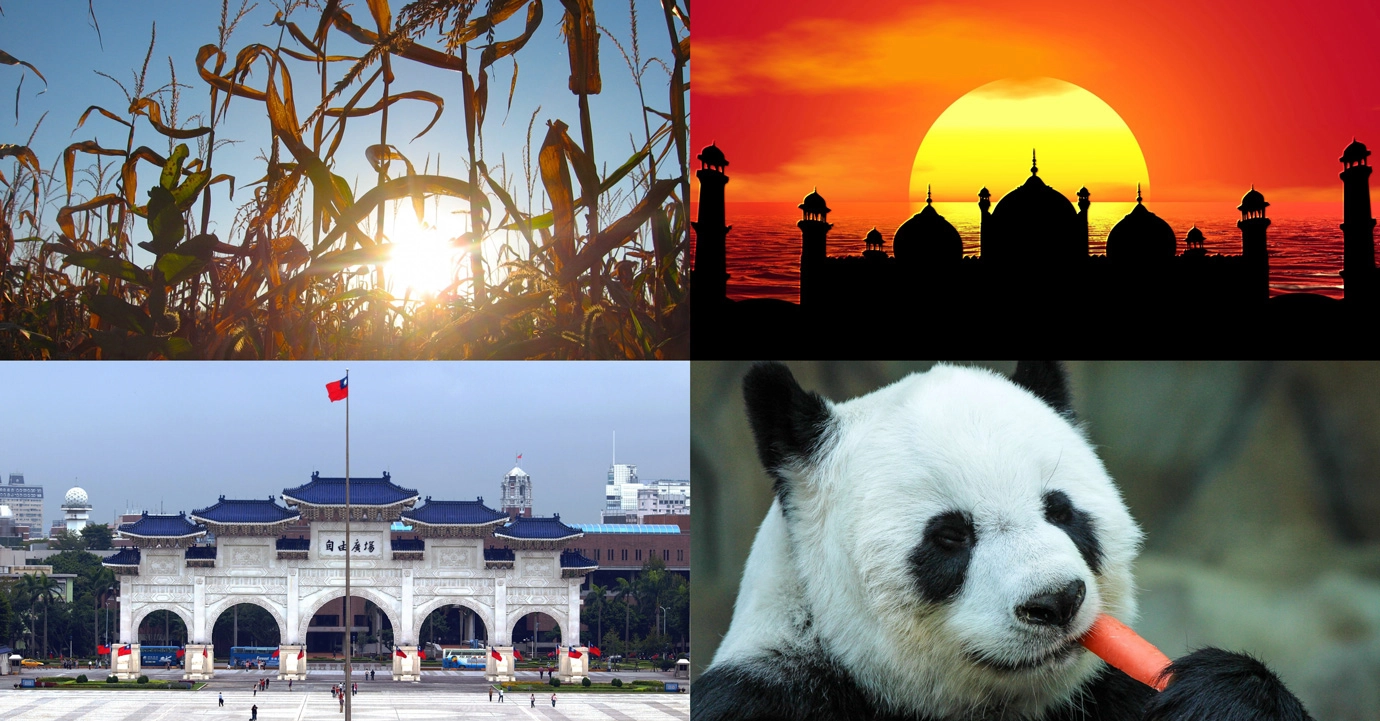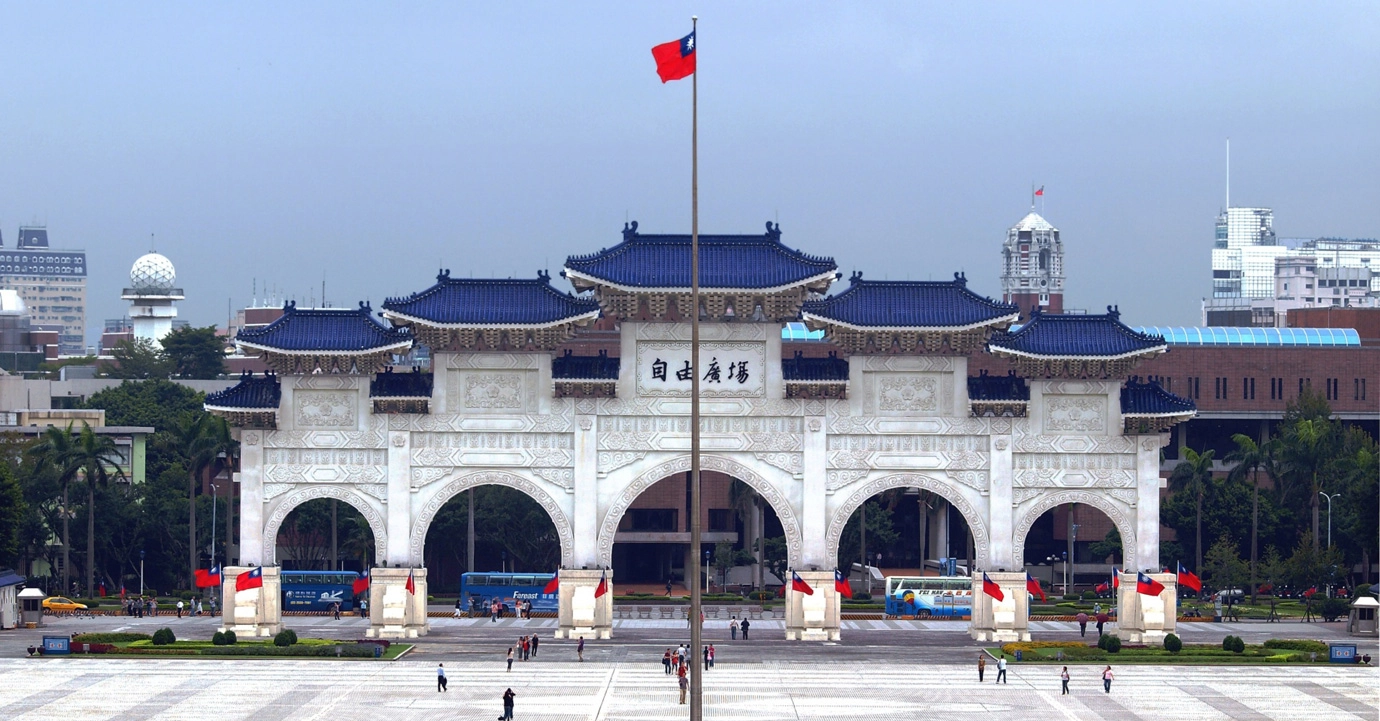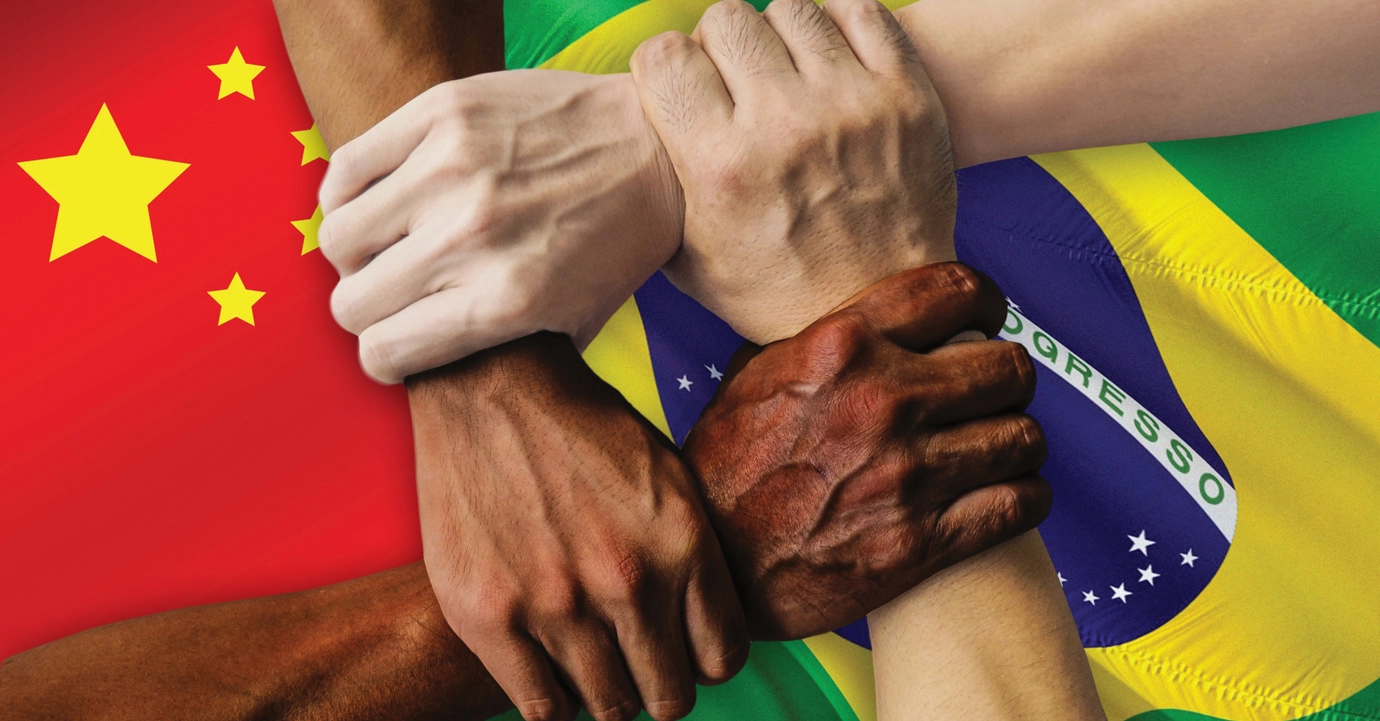Global Conflicts, Food Security, 5.5G Technology, & Diplomacy†

chiplanay X, Muslim Mosque Eid Ramadan Faith;
Alix Lee, Liberty Plaza Gate;
icon0 com, Panda In ChiangMai Zoo, Thailand (Publicdomainpictures.net)
Update #1: China’s Preparation for Global Conflicts: Food Security & Latin America

The limited supply of arable land in China despite its vast territory has made its leaders acutely aware of the need to strengthen the country’s food security by diversifying sources of its agricultural imports. Brazil has become a significant partner for such diversification. For example, although the first shipment of Brazilian corn exports to China only took place recently, in November 2022, Brazil has already become a key corn exporter to China in less than a year. In fact, during the first eight months of 2023, approximately 18% of Brazilian corn exports were shipped to China , while merely 13% of U.S. corn exports during the period were sent to China (vs. 26% the previous year).
Worth noting:
The outbreak of the Israel-Hamas conflict will further divide the world, which has already seen heightened tensions as the Russia-Ukraine war drags on.
In light of these conflicts, China will increasingly lean on Latin America, with which China has developed strong agricultural cooperation, to secure the country’s food supplies. According to China’s Ministry of Commerce, agricultural imports from Latin America reached USD 64.79 billion in 2021, an increase of almost 25% from 2020. In fact, agricultural imports from Latin America accounted for nearly 30% of China’s total agricultural imports in 2021. Sources of these imports were primarily Brazil, Argentina, Chile, Ecuador, Peru, and Uruguay.
China’s closer ties with Central American countries are expected to lead to more agricultural exports from these countries to China. In fact, Rita Lezcano, a Panama-based member of the SINOTALKS® Global Business & Development Network, has already identified a “thriving” Panama-China partnership in this area:
The ongoing commitment of China to facilitate Panamanian exports is a remarkable testament to the potential for growth and collaboration between our nations. Minister Augusto Valderrama’s mission to China, marked by engagements with academic, business, and governmental stakeholders, has forged key understandings that promise to enhance agricultural cooperation. […] As the first half of the year concludes, the groundwork for a thriving partnership between Panama and China in the food production sector has been well laid.
[emphasis added]
Related article:
Update #2: 5.5G Networks & the Middle East

Huawei Technologies Co., Ltd., a multinational technology corporation headquartered in Shenzhen, China, just launched 5.5G networks in Dubai, in partnership with China’s state-owned telecommunication operators including China Mobile and key industry players from the United Arab Emirates and Saudi Arabia.
The 5.5G technology is a type of technology that acts as a bridge between currently used 5G technology and 6G, which is expected to be ready in the coming decade. Compared with 5G technology, 5.5G technology is marked by speedier performance and more efficient power consumption, both of which are essential to the development of virtual reality and smart cars.
Worth noting:
The above-mentioned launch of 5.5G networks is an example of China’s growing technological collaboration with Middle Eastern countries, many of which seek to leverage China’s high-tech industries to pursue technological advancement.
Such technological collaboration between China and the Middle East will, however, be impeded if the Israel-Hamas conflict cannot be resolved quickly and if sustainable peace is not achieved in the region. Will China be able to leverage the diplomatic skills it displayed when helping to broker the difficult Saudi Arabia-Iran deal and assist Israel and Hamas in finding peaceful solutions?
Update #3: More Taiwanese People Support Status Quo

In a poll reported in mid-October, a record high percentage of Taiwanese respondents (nearly 60%) indicated their support for “maintaining the status quo” in Taipei’s relations with Beijing. In the same poll, only slightly over 25% of respondents said that they would support Taiwan independence. In addition, 74.4% of respondents expressed their desire to see more interactions between Taiwanese people and people on the mainland.
Worth noting:
These poll results will bolster Beijing’s belief that its latest measures regarding Taiwan are on the right track. In early September, for example, as an attempt to create more harmonious relations across the Taiwan Strait, the top Chinese leadership issued a high-level document that strongly encourages Fujian Province, which is near Taiwan, to “explore new paths for the integrated development across the [Taiwan] Strait” and “build a zone to demonstrate” such integrated development. Proposed initiatives include, but are not limited to, encouraging Taiwanese people to study or work in Fujian and increasing opportunities for social interactions between Taiwanese people and local people in the province.
Given these poll results, Beijing is expected to introduce more measures to facilitate more interactions across the Taiwan Strait.
Update #4: Panda Diplomacy, South Korea, and Japan

Magdalene Uzoechi, a Nigeria-based member of the SINOTALKS® Global Business & Development Network, shares her observations about “panda diplomacy”:
Panda diplomacy is a form of soft power that China uses to build relationships with other countries […]. Pandas are seen as national treasures in China, and “gifting them” or “loaning them” is seen as a sign of great respect.
[…] The fact that Panda Diplomacy has been successful in building goodwill between China and other countries and has also helped to promote Chinese culture and values in these countries and beyond point to the superior thinking of those behind the initiative.
Worth noting:
Two recent examples illustrate the important role pandas can play in helping build goodwill between China and two of its Asian neighbors: South Korea and Japan.
A pair of baby pandas recently born in Seoul drew much excitement from South Koreans. The cubs’ parents were presented in 2016 as state gifts from Chinese President XI Jinping to South Korea. Approximately half a million South Koreans helped choose the cubs’ names via an online poll.
Panda souvenirs brought two excellent swimmers from China and Japan closer during the recent Asian Games held in Hangzhou, Zhejiang Province. ZHANG Yufei, who broke the Asian Games record for the women’s 100m butterfly in September, admired Rikako Ikee, a Japanese swimming star who at the 2018 Jakarta Asian Games became the first woman to earn the title of Asian Games MVP. Ikee was unfortunately diagnosed with leukemia in 2019, but managed to recover and has since worked hard to return to competition.
To encourage Ikee, Zhang told reporters that she wished to “send [Ikee] a gift that represents the traditions and customs of China, and which she will like. I really can’t make up my mind […].” Afterwards, Ikee told reporters, “Pandas! I would like to take some cute panda souvenirs as gifts back to Japan.” Zhang made Ikee’s wish come true and the two young athletes shared a tearful hug that was one of the highlights of the Asian Games.
† The citation of this article is: The Editorial Board of SINOTALKS®, Global Conflicts, Food Security, 5.5G Technology, & Diplomacy, SINOTALKS.COM®, SinoExpress™, Oct. 18, 2023, https://sinotalks.com/sinoexpress/food-security-diplomacy.





